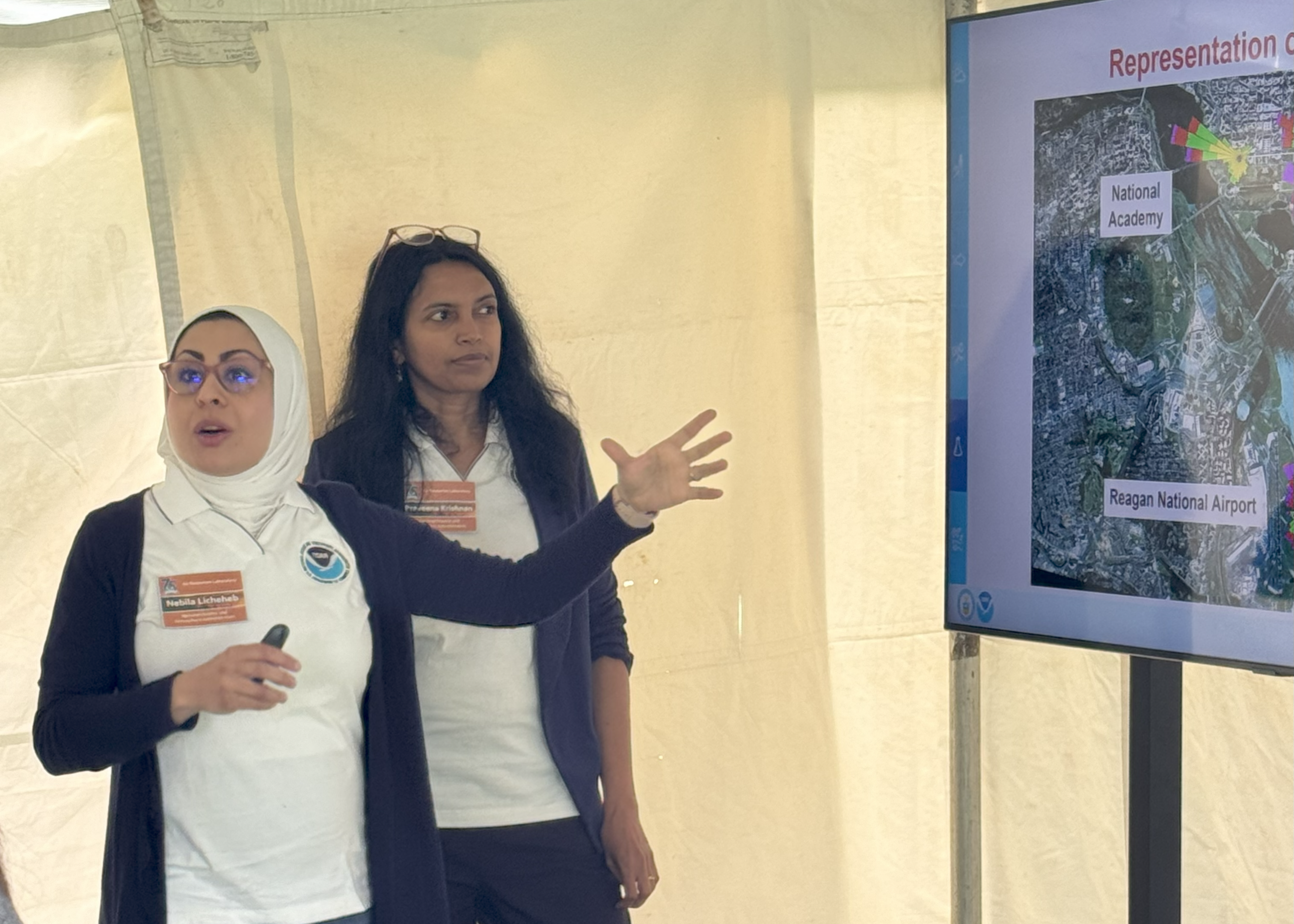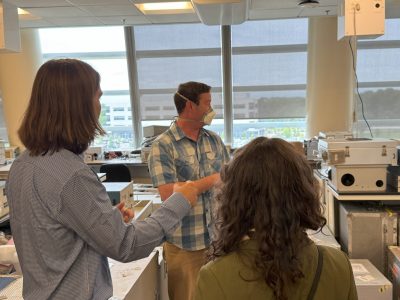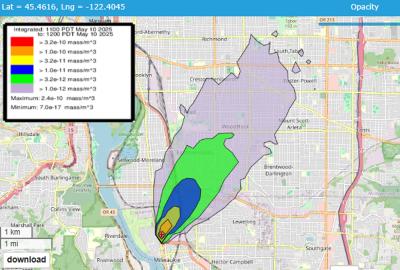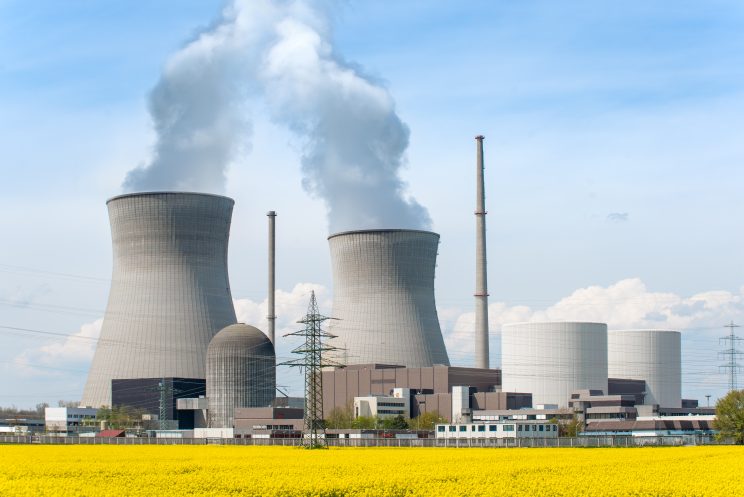Newsworthy clips from around ARL
Boundary Briefs
Howard Diamond hosts Knauss Fellows at the ASMD lab
July 22, 2025
The 2025 Knauss Fellows toured the NCWCP building in College Park, MD on Friday, July 18. Their last stop was ARL’s Atmospheric Sciences and Modeling Division Lab where Howard Diamond talked about the history and current work at ARL. The Fellows asked questions and were interested in how Howard came to ARL.
There was so much interest from the 2025 cohort in this tour, that they are looking to set up a second tour to allow more of the group to attend!


John Kochendorfer recognized with WMO award
July 10, 2025
ARL’s Atmospheric Turbulence and Diffusion Division Director John Kochendorfer received the World Meteorological Organization’s (WMO) Professor Dr Vilho Väisälä Award for Outstanding Research Paper on Instruments and Methods of Observation.
John was a co-author on a paper titled Adjustment of Solid Precipitation during the Filomena Extreme Snowfall Event in Spain: From Observations to “True Precipitation” published in November 2022 in the Bulletin of the American Meteorological Society.
The award will be presented at a ceremony during the WMO’s Technical Conference on Instruments and Methods of Observation in 2026.

Nebila Lichiheb joins AGU Voices for Science
July 10, 2025
ARL scientist Nebila Lichiheb was selected to join the 2025-2026 AGU Voices for Science cohort, a year-long course for scientists interested in science communication and policy research.
Nebila has been an active member of AGU since 2017. Over the past eight years, she has served as an Outstanding Student Presentations Awards judge, served as a panelist at the Chapman Conference, and participated on a career panel for AGU Bridge students to promote equitable practices in graduate education. In 2024, she was nominated to the AGU Global Engagement Committee for a two-year term.
Scientists often have difficulty explaining their research to non-technical audiences. Voices for Science steps into that gap to train scientists to communicate the value of Earth and space sciences to the public with plain language messaging different audiences. Participants work with AGU staff on regular outreach activities with a variety of audiences.
Nebila applied in June and out of over 100 applications, she was one of about 20 who were selected to participate. The selection committee invited her to join stating, “We are very impressed by your passion and dedication and would like you to be a part of our program from September 2025 – August 2026.”

Emergency managers use ARL HYSPLIT model in nuclear leak training exercise
July 7, 2025
ARL’s HYSPLIT model was used in an exercise with Holt Summit Fire Department, the Callaway County Emergency Management Agency, Health Department and Sheriff Offices, the Missouri Department of Health and FEMA on June 27. The Weather Forecasting Office (WFO) in St. Louis provided emergency decision support and HYSPLIT models of the path of travel and amounts of the simulated nuclear leak.
The HYSPLIT model is one of the most extensively used atmospheric transport and dispersion models in the atmospheric sciences community and has been developed and updated for nearly three decades by ARL scientists. The National Weather Service has a custom-designed version of the model which WFOs around the country routinely use for real and simulated emergencies at the request of local, state and federal agencies.
The Holt Summit Fire Department Assistant Chief thanked the WFO in Saint Louis, saying: “I would like to thank you for your plume model for the training exercise this morning. The sheriff deputy was able to upload [this information] into his map overlaying the controlled access areas, allowing for better evacuation plans. State and County Health is [then] able to take physical sample reading in the higher exposure areas, while the real time weather made the training exercise more realistic.”
ARL scientists inspire students during tour of Air Resources Lab
June 3, 2025
On Thursday, May 29, 25 rising college juniors toured the Air Resources Lab. Howard Diamond gave an overview of the work at ARL and Phillip Stratton answered some questions about the equipment used in the Air Resources Car and the NOAA Twin Otter airplane during field missions, such as the AiRMAPS campaign this summer in Baltimore, MD.


The HYSPLIT Team released HYSPLIT v5.4.0 on May 7th
May 20, 2025
Congratulations to the entire HYSPLIT team and thank you for your excellent work that made this happen!
The new release is a major update and includes important new features and improvements such as upgrading graphics capabilities, which makes more user-friendly graphical outputs. The update also includes the ability to create windrose diagrams; these are map diagrams that summarize wind speed and direction at a specific location over time.
More details about the changes can be found on the HYSPLIT model update page.
On a related note, check out one of the ways HYSPLIT helps communities.




